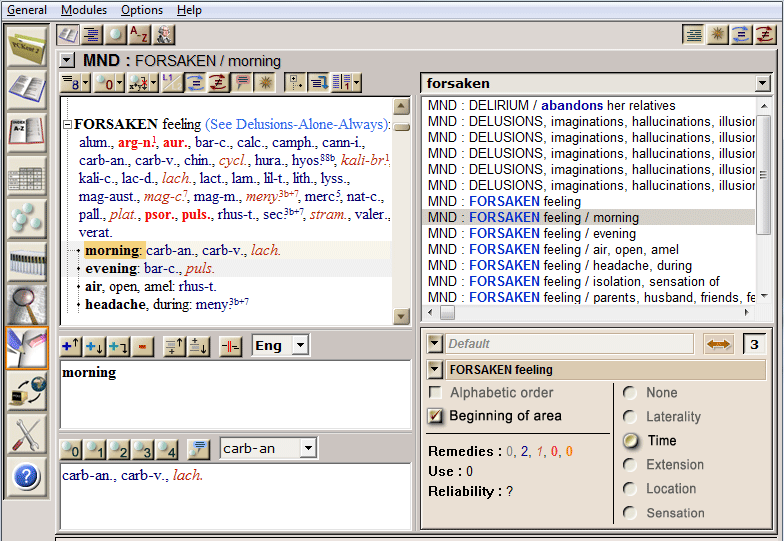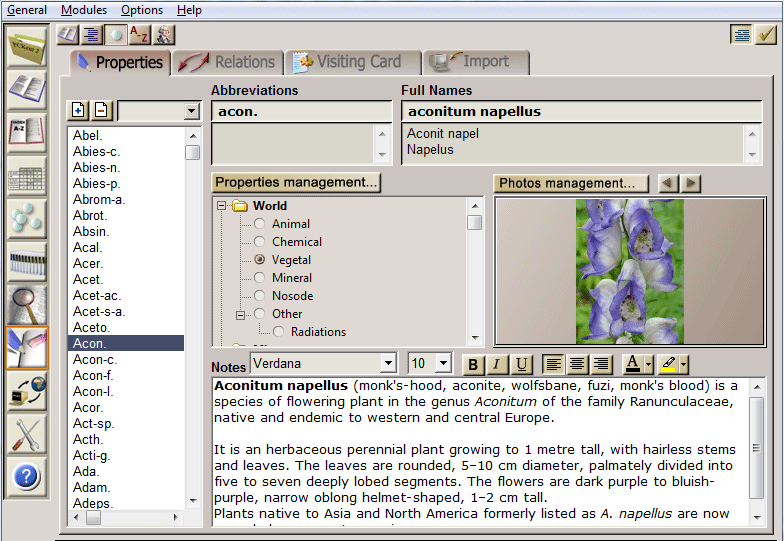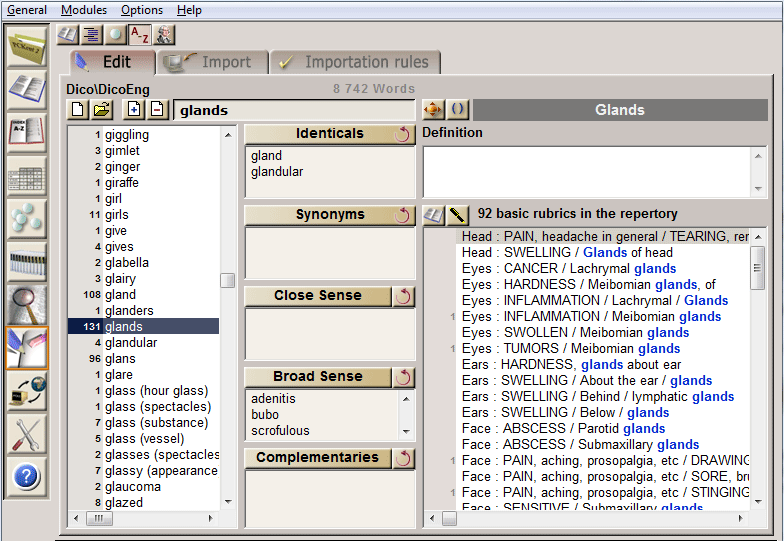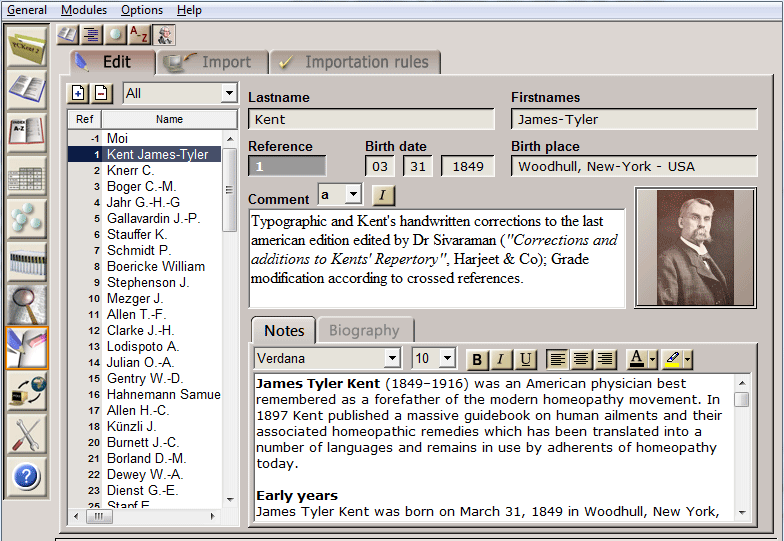|
|
 |
PCKent 2 : Description
Part 2 - Editing
Introduction
The editing module allows everyone to make his own additions, and to use it
instantly.
Editable data is divided into five categories, as described below.
THE RUBRICSSince
many properties are associated with each rubric, the rubrics editing module is broken down into several sub-modules:
- Rubrics and general properties
editing.
This sub-module makes it possible to add or remove
rubrics, edit their text, their list of remedies and
their characteristics (classification mode, parent
rubric...).
- Notes editing.
This sub-module allows to provide clarification relating
to the rubric, the terms used to describe it...
- Generalization links editing.
These links allows to generalize the meaning of the
original rubric during the repertorial work.
- Opposite links editing.
These links are used to establish a differential
diagnosis.

THE SYNOPTIC PLANS
The synoptic plan editor is intended to classify rubrics,
assigning them a general value that will be used during the repertorial work.
THE REMEDIES
The remedies editing module offers features to satisfy three basic needs:
- Enrich the repertory's rubrics with new remedies.
For this, you have the ability to add several thousand
of remedies to the 640 remedies initially present in the
Kent's repertory, and to the 1500 remedies already
registered in PCKent.
- Establish relationships between remedies, in order to group
them or to differentiate them. That role falls to the remedies
property manager, a powerful tool that can be invoked
when searching for rubrics from the general index, and
which will soon be available in the query module...
- Gather general information which aims to illustrate
or enrich the data contained in the various materia
medica.

THE DICTIONARY
The dictionary task is to make the search of rubrics as
intuitive and efficient as possible. To achieve this goal, the dictionary
editing module gives you the ability to:
- add new words to the dictionary (and
delete wrong entries).
- distinguish the multiple meanings of
homographs (words that, under the same spelling, can
have several meanings).
- create links between words of more or less similar
meaning (identicals, synonyms...).

THE AUTHORS
The authors editing module is responsible for collecting
information from each author involved in the repertory composition, in order
to be able to clearly identify the origin of additions and modifications,
but also to build a historic.
For each author you have a Notes filed where you can type your own personal or import text from your favorite web
pages...

|